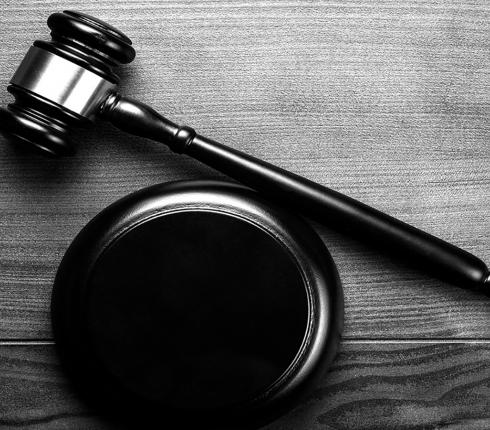NJORD Latvia: Duties of the Management Board of a commercial company to disclose beneficial owners (beneficiaries)
Since 1 December 2017, all commercial companies registered in Latvia have been required to disclose and submit information on their beneficial owners (beneficiaries) to the Register of Enterprises of the Republic of Latvia (the “Register”).
A commercial company is run and managed by its executive institution – the (Management) Board. Thus, the Board is the one fulfilling duties set forth in the Law on the Prevention of Money Laundering and Terrorism and Proliferation Financing (the «Law») towards the commercial company regarding determination and disclosure of the beneficial owners.
By general rule, each member of the company’s Board must perform his/her duties as an “honest and careful manager”. It means, among other things, ensuring that the commercial company fulfils provisions of laws and regulations. Moreover, the member of the Board must be loyal to the company itself and its shareholders.
For this reason, with respect to requirements of the Law on disclosure of ultimate beneficial owners (“UBOs”) of commercial companies, the duties of the Board may be classified as follows:
1. Notifying the company’s shareholders of the requirements of the Law
In accordance with the Law, a natural person who believes they have become a UBO of the company must notify the company immediately (as soon as he or she became a UBO), by submitting the following information:
- personal information: name, surname, personal identification (ID) number (if such exists), date of birth, number and date of issue of a personal identification document, citizenship, country of residence; and
- manner of exercising control, having indicated the person(s) and information on the person(s) the control is being exercised over. Moreover, he or she must also provide relevant supporting documents proving the exercise of control.
A natural person must notify and provide a legal entity with the above information also in cases, where the person acts in favour of another person – a shareholder/stockholder of a company.
Although the UBOs must notify of their status as UBO, it is reasonable to expect that the Board will duly notify the company’s shareholders of the requirements of the Law.
2. Disclosing the UBOs and notifying changes of the UBOs
The Board must submit to the Register an application on the UBO registration or on changes in this information (i.e., changes of the UBO of the legal entity, which is a company’s shareholder). Such application must be submitted immediately, and not later than within 14 days after receipt of the information from the UBO.
If a person loses the status as a UBO, the procedure of submission of information to the Register is the same.
3. Keeping information on the UBOs and submitting documentation confirming the exercised control to the Register
The Board must keep information provided to it by a natural person who believes he or she has become a UBO in the company. It must be noted that the Board, having received the information from the UBO, must ascertain the authenticity of provided information instead of just “adding it to the file”. This refers both to the identification of the UBO by personal identification documents and to the manner of exercising control over the company. In particular, the Board, when identifying the UBO by personal identification documents, must keep the respective document (certified copy of the passport/eID, a reference from the Population Register of the UBO’s country or other similar documents). The type of control over the company (if the UBO holds shares/stocks indirectly – through other persons) is documented by a reference from the register of the country of registration of the shareholder’s/stockholder’s company (if the UBO is mentioned as a shareholder/stockholder of the company), extract from the shareholders’ register, stock certificate, trust declaration, stock agreement, etc.
Even when the determination of the UBO is not possible, the Board must carry out the respective inspection and document it.
The Register has the right to request relevant supporting documents on the control exercised from the company. Often, when the company submits corporate changes to the Register (even not related to UBO changes), the Register requests that the company submits files supporting the control exercised.
4. Determining and identifying the UBO in case of doubt
If the Board has doubts about the correctness of information provided by a person who believes they have become a UBO, the Board must on its own initiative, determine and identify the UBO. The Board must act in the same manner if the information on disclosing a UBO was not filed at all and the Board has reasonable grounds to believe that there is a UBO of the company. Moreover, the Board may have reasonable doubts concerning credibility of information on a UBO recorded in the Commercial register by default (i.e., when the Register has determined that the company’s shareholders – natural persons – are UBOs, instead of receiving an application from the company).
Sanctions for failure to meet obligations on disclosure of UBOs
If the company fails to disclose its UBOs, the Register may apply a simplified liquidation procedure with respect to the company.
Failure to submit information to the Register may result in a warning or a fine between 70 EUR and 700 EUR. Failure to provide data or intentionally providing false data on the UBO the Register may incur criminal liability – the member of the Board may be punished with imprisonment for up to one year, community service, or a fine. If such actions cause substantial harm to the State or business or interests of other persons protected by the Law, the period of imprisonment may be up to two years.
Moreover, failure of the company’s members of the Board to meet requirements of the Law concerning disclosure of the UBOs may result in a claim filed against them on behalf of the company.
If you have any questions or you need additional advice concerning the above information, please contact the partner at NJORD Law Firm Riga office, Attorney-at-law Dmitri Kolesnikov (ph. +371 67 313 315, dk@njordlaw.lv).

































